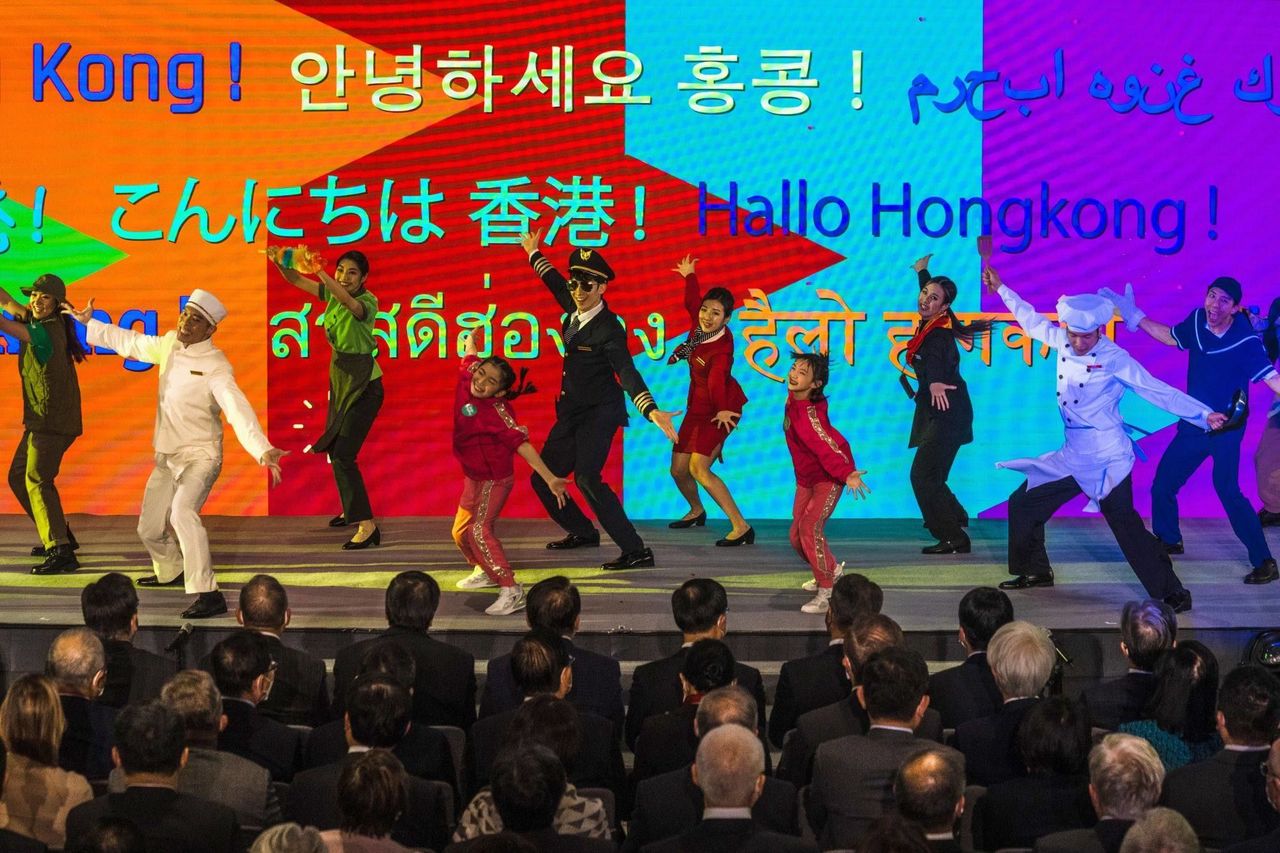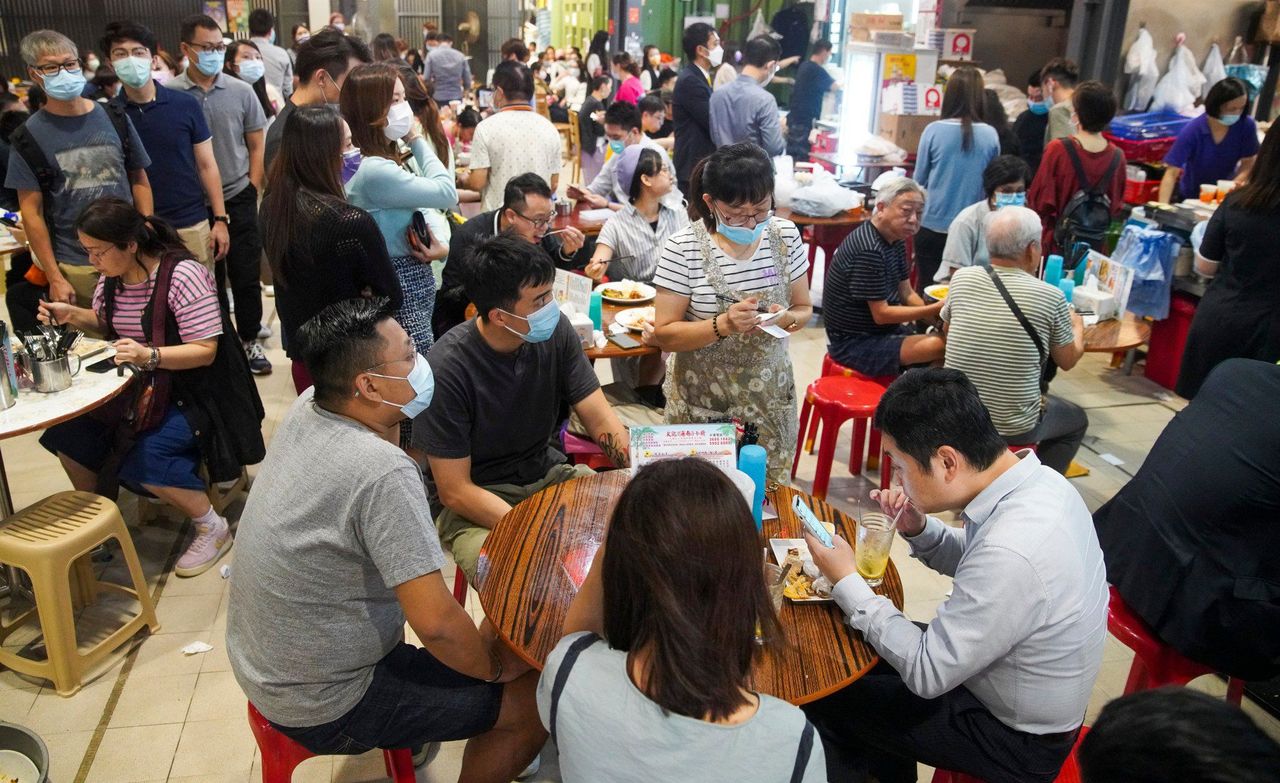Hong Kong News

Happy Hong Kong? Look to wonton soup for the soul and small businesses
In his latest budget, Financial Secretary Paul Chan Mo-po announced a “Happy Hong Kong” campaign aimed at local residents, which will offer the public “gourmet experiences, fun amusements and exciting ambience” after three years of strict anti-pandemic measures.
With the end of the mask mandate, Hong Kong has finally largely returned to normal as many countries have done in the past year. Chan’s budget is an attempt to raise people’s spirits, but the resulting good cheer may only be an illusion. The Covid-19 pandemic has left much long-term damage that the government needs to help repair.
The government plans to launch a “gourmet marketplace” with food fairs in various districts. The intent behind the plan is admirable, but the pandemic had far more impact on Hong Kong’s food scene than a series of food fairs can fix.
Before the easing of pandemic restrictions last year, an estimated 8,000 restaurants faced the prospect of closing as a government-backed payment deferral scheme ended. With all major pandemic-related measures lifted now and visitors starting to return, restaurants and related businesses are expected to recover.
Even so, Hong Kong has already lost many well-loved businesses. The Ale Project, a bar focused on selling local craft beer, closed its Tsuen Wan location last August. Tai Wing Wah, a local restaurant serving “walled village cuisine”, shut its Wan Chai location the same month.
There is little doubt the ageing of business owners has contributed to restaurant closures. However, the financial pressure of keeping these businesses going in the face of strict pandemic controls and a lack of government support only worsened their situation.
Hong Kong is famous for its shopping centres and the diversity of food on offer. Locals and visitors alike can sample cuisines from around the world without needing to travel long distances. Being open to different tastes and an enthusiasm for good food are defining features of the city.
Amid the wave of restaurants closing their doors, the government and trade unions should do more to preserve the city’s food scene. Food fairs are a good starting point, but this is far from enough. Small businesses need more support with costs such as electricity and wages on the rise.
Restaurants are an integral part of the city’s identity. Street food, such as fish balls, wonton noodles and dim sum, are associated with Hong Kong itself. When the government tries to promote the city, showcasing these examples of local food culture would attract those who are interested in the real Hong Kong and its people’s everyday lives.
Street food hotspots might not be as fancy as upscale shopping centres on Hong Kong Island, but small businesses and the people who work in them from the early hours – preparing affordable, high-quality dishes – are critical to keeping this fast-paced city functioning.
The government’s vision is clear in the “Hello Hong Kong” campaign aimed at promoting the city around the world and attracting tourists. The government has launched a massive airline ticket giveaway, noting that new attractions such as the Palace Museum and M+ Museum offer tourists exciting experiences. It plans to launch more large-scale events on finance, the economy, innovation and technology, sports, art and culture.
It will sponsor the visits of foreign business leaders, politicians and other influential people to allow them to encounter the real Hong Kong. It will also organise delegations to go overseas and tell “good Hong Kong stories”.
 Performers on stage during the ceremony launching the ‘Hello Hong Kong’
campaign on February 2. Hong Kong will hand out 500,000 air tickets to
bring in much-needed visitors as part of a global publicity campaign.
Performers on stage during the ceremony launching the ‘Hello Hong Kong’
campaign on February 2. Hong Kong will hand out 500,000 air tickets to
bring in much-needed visitors as part of a global publicity campaign.
What the campaign does not include, though, are images of ordinary Hongkongers and their lives.
When the government emphasises international events in its plans to promote Hong Kong, it seems to forget what it is about the city that should be taken care of and promoted the most – the real lives of its ordinary people. There is more to Hong Kong worth highlighting to the world than how well we can host large-scale events or provide luxury services to the influential visitors.
Rather, the true attractiveness of a city lies in how it treats its residents and local businesses. Restaurants are an important part of that.
 People eat lunch at the Haiphong Road Temporary Cooked Food Hawker Bazaar in Tsim Sha Tsui in October 2020.
People eat lunch at the Haiphong Road Temporary Cooked Food Hawker Bazaar in Tsim Sha Tsui in October 2020.
There is no doubt that the Hong Kong government is sincere in its intention to bring happiness back to the city after three long years of fighting the pandemic. However, the city’s leaders would do well to remember that the source of this happiness might be found in everyday businesses – the ones that serve people a bowl of warm, delicious soup after a hard’s day work or that offer workers a refreshing a glass of iced lemon tea and ham-and-egg noodles well into the night.











